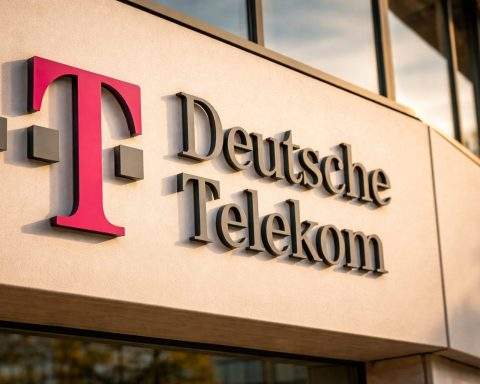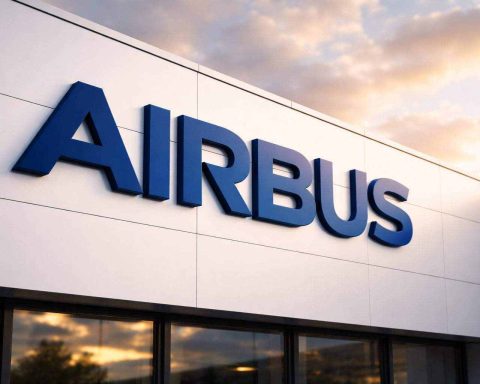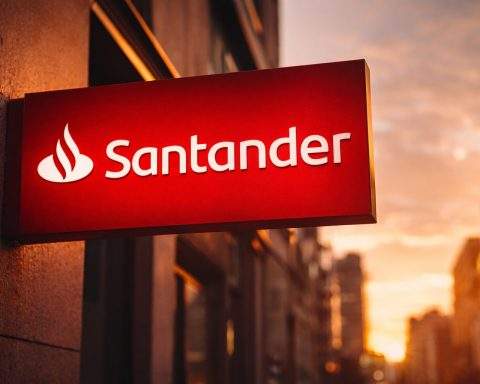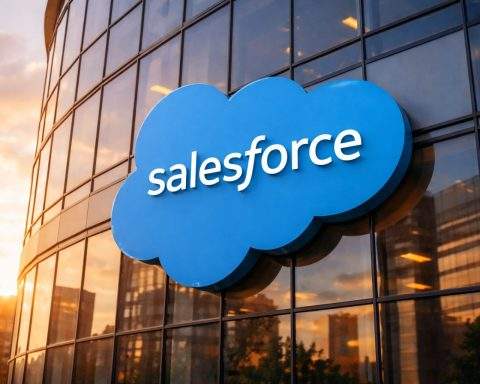From Wall Street hitting new highs to an AI upstart targeting a piece of Google’s empire, the past two days brought a flurry of major developments across global business. Below is a structured roundup of the top news from August 12 and 13, 2025, spanning finance, technology, energy, retail, automotive, and healthcare.
Finance & Markets
- Markets Cheer Mild Inflation: Investors worldwide breathed a sigh of relief as U.S. consumer price data for July came in slightly below forecasts, rising just 0.2% on the month reuters.com. The tame inflation bolstered expectations that the Federal Reserve will cut interest rates in September, with futures pricing in nearly a 98% chance of a quarter-point rate drop reuters.com reuters.com. U.S. stock indices surged to record highs on Aug. 12 – the S&P 500 and Nasdaq notched fresh closing peaks – amid optimism that cooling price pressures will spur easier monetary policy reuters.com. “The CPI data is supportive for equities overall… with the Fed looking more on track to cut in September,” noted Katherine Bordlemay of Goldman Sachs Asset Management reuters.com. The rally was global: MSCI’s all-world stock index hit an all-time high, Japan’s Nikkei index broke above 43,000, and European bourses climbed as investors piled into risk assets on the good inflation news reuters.com 1 .
- Trade Truce Extended: In a significant geopolitical development, Washington and Beijing agreed to extend their tariff truce until November 10, averting the imminent escalation of duties on hundreds of billions in goods reuters.com. This pause in the U.S.-China trade war – which had threatened “triple-digit” tariff rates – provided additional relief to markets and manufacturers already contending with trade uncertainty. The news helped bolster market sentiment and “stave off” a potential headwind to global growth reuters.com, although some analysts cautioned that inflation could later tick up once tariffs eventually filter through reuters.com 2 .
- Central Bank Moves: The global wave of monetary easing continued. Australia’s central bank cut interest rates on Tuesday, as expected, and even signaled the need for further easing to support growth amid a loss of economic momentum reuters.com. The move underscores how policymakers in many countries are pivoting to a more dovish stance as inflation cools. Meanwhile, the U.S. dollar weakened to its lowest levels of the year on the rising Fed rate-cut bets reuters.com, boosting riskier currencies. U.S. Treasury yields also fell on the prospect of easier policy reuters.com. However, some strategists urged caution – one noted that a single report “can move the policy debate,” so upcoming data could still sway the Fed’s decision 3 .
- Retail Traders “Buy the Dip”: On the finance industry front, online brokerage eToro reported strong second-quarter results that beat Wall Street expectations, crediting a surge of retail investors “buying the dip” during market volatility in April reuters.com. CEO Yoni Assia said individual investors on the platform snapped up shares of tech giants like Google and Tesla when stocks swooned after new tariffs were announced, much as they did during past crises reuters.com. Thanks to that trading frenzy, eToro’s profit topped forecasts. However, executives cautioned that trading activity normalized by July, and the stock fell about 8% as initial earnings euphoria gave way to disappointment reuters.com. “The beat didn’t come with a sustainably higher run-rate” of business, one analyst noted, after management admitted the April tariff-shock uptick was temporary reuters.com. Still, eToro highlighted growth areas – crypto trading on the platform jumped in July as Bitcoin hit an all-time high, part of a broader trend of fintech firms expanding crypto offerings amid clearer U.S. regulations 4 .
Technology
- Audacious $34.5 B Chrome Bid: An eye-opening move in tech came as AI startup Perplexity AI offered $34.5 billion in cash for Google’s Chrome browser reuters.com. The unsolicited bid, disclosed on Aug. 12, vastly exceeds Perplexity’s own valuation (around $14 billion) and underscores how crucial web browsers have become in the race to dominate AI-driven search. Led by 3-year-old startup CEO Aravind Srinivas, Perplexity pitched the deal as a way to access Chrome’s 3+ billion users and “better compete with bigger rivals” in AI reuters.com. Google has not put Chrome up for sale – it’s fighting a U.S. antitrust ruling that deemed Google’s search monopoly illegal and suggested a Chrome divestiture as a remedy reuters.com. Nonetheless, the bid is notable for its boldness. Perplexity, which has backing from investors like Nvidia and SoftBank, said unnamed funds are willing to finance the massive purchase reuters.com. (Earlier this year, the startup made a similarly dramatic offer to take over TikTok’s U.S. operations.) The news lifted Alphabet’s stock about 1%, though analysts are skeptical Google would ever cede Chrome reuters.com. Still, the move highlights Big Tech’s pressure – OpenAI, Yahoo and private equity firms have also expressed interest in Chrome amid regulatory pressure on Google reuters.com – and the lengths to which upstarts will go to gain an edge in the AI arena.
- OpenAI’s Record Funding Push: In a related sign of the AI investment frenzy, Reuters reported that OpenAI is close to finalizing a landmark $40 billion funding round led by Japan’s SoftBank reuters.com. OpenAI had signaled plans to raise up to $40 billion earlier this year at a whopping $300 billion valuation, aiming to bankroll its next generation of AI models and infrastructure reuters.com. SoftBank agreed to anchor the round with $10 billion upfront and $30 billion more by year-end – contingent on OpenAI restructuring into a for-profit entity – effectively making Masayoshi Son’s conglomerate the startup’s biggest outside backer reuters.com reuters.com. Additional funding is expected from Microsoft and major VC firms reuters.com. This would be the largest private capital raise in tech history, vaulting OpenAI’s valuation into the same league as SpaceX or ByteDance reuters.com. Industry experts note the scale is unprecedented: “OpenAI has very ambitious plans…and needs a lot of capital to achieve these goals,” says analyst Gil Luria, adding that few investors beyond SoftBank have the capacity for such a commitment reuters.com. The cash infusion comes as OpenAI’s ChatGPT boasts over 700 million weekly users and ~$13 billion in annualized revenue, with the Trump administration’s pro-AI policies providing tailwinds techcrunch.com techcrunch.com. The takeaway: even amid lofty valuation concerns, heavyweight investors are racing to stake claims in AI’s future – a theme underscored by both OpenAI’s fundraising and Perplexity’s brazen bid for a piece of Google.
Energy & Commodities
- Oil Steady Ahead of High-Stakes Talks: Oil markets largely flatlined heading into mid-week, with Brent crude hovering around $66 a barrel reuters.com. Traders adopted a cautious “wait-and-see” stance as they awaited U.S. inventory data and a pivotal meeting between U.S. President Donald Trump and Russia’s Vladimir Putin reuters.com. The two leaders are set to confer in Alaska on Friday about ending Russia’s war in Ukraine – a conflict that has roiled oil markets since 2022 reuters.com. Hopes that peace talks could ease sanctions on Russian oil have tempered supply fears. “The outcome [of the Trump-Putin summit] could remove some of the sanction risk hanging over the market,” noted strategists at ING, explaining the market’s hesitancy reuters.com. At the same time, U.S. crude stockpiles showed an unexpected build-up last week, according to API figures, raising the prospect that summer fuel demand may have peaked reuters.com. Official data due later Wednesday will confirm if inventories rose – if so, it suggests refiners are dialing back output as the driving season winds down reuters.com. Meanwhile, the latest outlooks from OPEC and the U.S. Energy Information Administration pointed to rising oil production this year, which also kept a lid on prices reuters.com. Notably, the EIA predicts U.S. crude output will hit a record 13.4 million barrels/day in 2025 before declining in 2026 as lower prices curtail drilling reuters.com. OPEC left its 2025 demand forecast unchanged but sees global oil demand growing by a further 1.38 million bpd in 2026 reuters.com. Bottom line: oil prices remain range-bound in the mid-$60s, caught between the prospect of a geopolitical breakthrough and signs of ample supply on the horizon.
- Energy Deals and Shifts: In energy-related corporate news, Ecolab agreed to buy the electronics water business of Ovivo for $1.8 billion to bolster its offerings in advanced chipmaking water treatment reuters.com. The deal, announced Aug. 12, lets Ecolab tap into booming demand for ultra-pure water and cooling systems from semiconductor manufacturers and data centers. It reflects how AI and tech growth are spurring investments in infrastructure like water tech (needed to cool high-powered AI chips) reuters.com. Elsewhere, power and utilities saw consolidation: Hubbell Co. said it will acquire peer DMC Power for $825 million to expand in the electrical components market reuters.com. And in a transatlantic move, UK-based Primary Health Properties (PHP) clinched 62.9% shareholder support in its bid for rival Assura, clearing the way for a merger of the healthcare-focused property REITs reuters.com. These deals underscore an ongoing trend of targeted M&A across the energy and industrial sectors, as companies seek scale and new capabilities amid the energy transition and electrification boom.
Retail & Consumer
- Big Apparel Merger Looms: A major transatlantic apparel deal is on the horizon. Canada’s Gildan Activewear is nearing an agreement to acquire U.S. innerwear maker HanesBrands in a transaction valuing Hanes at roughly $5 billion including debt reuters.com. Talks are at an advanced stage and could yield a formal deal by week’s end, according to sources, though there’s still a chance it could fall through reuters.com. The mere prospect of a buyout sent HanesBrands stock soaring 28% on Tuesday, while Gildan’s Toronto-listed shares dipped about 3.7% on the news reuters.com. Hanes – the company behind Hanes underwear and other basics – has struggled in recent years, hit by rising costs and tariffs that have impacted three-quarters of its sales reuters.com. Its stock had plunged over 40% year-to-date before the takeover rumor, even after the firm beat Q2 profit forecasts last week and raised its outlook reuters.com. Gildan, known for blank t-shirts and activewear, sees an opportunity to gain scale in the basics market. The deal would follow HanesBrands’ move last year to sell its Champion sportswear brand for $1.2 billion in order to refocus on core innerwear reuters.com. It also comes after a proxy fight upended Gildan’s board in 2024, signaling pressure on Gildan’s management to pursue bold changes reuters.com. If finalized, the merger would unite two big names in North American apparel and create a global basics powerhouse in everything from underwear to printed t-shirts.
- Consumer Sector Tidbits: In other retail news, UK inflation data showed some relief for consumers, with July shop price inflation easing to its lowest rate in nearly a year, according to industry figures (a positive sign for retailers ahead of the holiday season). Global luxury sales remained resilient, as French fashion house Chanel reported strong first-half revenue growth, defying worries of a post-pandemic slowdown in high-end spending. And consumer electronics saw a shake-up in leadership: Samsung Electronics announced its longtime mobile chief will step aside, part of a generational management shift as the company bets on new growth areas like AI and automotive chips (though Samsung’s official statement emphasized continuity in strategy). Overall, the consumer and retail sector is navigating a mixed landscape – mergers and cost pressures on one hand, but also pockets of robust demand and strategic realignments on the other.
Automotive & Transportation
- EV Sales Cool (But Not Stall):Global electric vehicle sales growth slowed to +21% year-on-year in July, the most sluggish pace since January, according to new research reuters.com. The deceleration was mainly driven by China’s EV market losing steam – China is over half the world’s EV market, and its EV sales rose only 12% in July as the government paused some 2025 purchase subsidies reuters.com. This marks a sharp comedown from the 30–40% monthly growth rates China saw in the first half of the year. The bright spot is Europe, where EV and plug-in hybrid sales surged 48% in July thanks to fresh incentives and emissions targets boosting demand reuters.com. The rest of the world also jumped 55% off a smaller base reuters.com. In absolute terms, about 1.6 million plug-in vehicles were sold worldwide in July reuters.com. Despite regional divergences, experts remain bullish on the trajectory of electrification. “Despite regional variations, the overall trajectory for EV adoption in 2025 remains strongly upward,” said Charles Lester of Rho Motion, noting that other markets are taking up the slack as China cools reuters.com. Automakers like BYD – the world’s biggest EV producer – have hit bumps (BYD saw its third straight monthly drop in China sales) reuters.com, but momentum in the West is building as automakers roll out more affordable models and governments push toward decarbonization.
- JLR Recalls SUVs:Jaguar Land Rover announced a recall of over 121,000 Range Rover and Range Rover Sport SUVs in the U.S. due to a safety defect reuters.com. The recall, disclosed by the NHTSA on Aug. 13, involves front suspension knuckles that could crack – a serious issue that can affect steering control. The vehicles in question span multiple recent model years. JLR, owned by India’s Tata Motors, is notifying owners and will replace the faulty components. This is one of JLR’s larger recalls in the U.S. market and comes as the luxury SUV maker is trying to rebuild its reputation for quality. (Earlier this year JLR outlined plans to simplify its supply chain and improve reliability as it transitions toward electric models.) The repair costs will be borne by the company, and dealers are expected to begin performing the fixes within weeks.
- Emissions Showdown in California: A major legal battle over truck emissions intensified as four of the world’s biggest truck manufacturers – Daimler, Volvo, Paccar, and Traton (VW’s truck unit) – sued the state of California to block its new zero-emission rules for heavy-duty vehicles reuters.com. The lawsuit, filed Aug. 12, argues that California’s strict mandates on phasing in electric and low-NOx trucks are no longer valid because President Trump revoked the state’s special waiver allowing it to set its own environmental standards reuters.com. The truckmakers say they’ve been “caught in the crossfire” between U.S. federal policy and California’s goals reuters.com. In June, Trump and Congress nullified California’s authority to require a rising share of electric trucks, undoing an EPA waiver granted under the prior administration reuters.com reuters.com. Now California’s Advanced Clean Trucks program – which was to start enforcing sales quotas for zero-emission rigs – is in legal limbo. The companies argue the patchwork regulatory uncertainty is causing “irreparable harm” by making it unclear what vehicles they can sell where reuters.com reuters.com. California officials (including the Air Resources Board and Governor Gavin Newsom) have vowed to fight back, defending the state’s right to combat pollution. This clash, pitting climate policy against claims of federal preemption, will likely set the course for U.S. clean-trucking efforts. Environmental groups note that several major truck makers voluntarily agreed last year to work toward cleaner trucks in California – but with that “Clean Truck Partnership” now effectively voided by the feds, the court battle will decide how and when diesel big-rigs must start going green.
Healthcare & Pharmaceuticals
- Cardinal Health’s $1.9 B Expansion Play: In the healthcare sector, drug distributor Cardinal Health announced a $1.9 billion acquisition of Solaris Health, a private network of urology clinics, as it pushes deeper into higher-margin specialty care reuters.com. The Ohio-based Cardinal will pay cash to buy Solaris – which provides management services to over 750 urology providers across 14 states – and fold it into Cardinal’s Specialty Solutions unit reuters.com. The deal (expected to close by year-end) will give Cardinal a presence in the growing market for outpatient specialty treatments, from cancer infusions to advanced prostate therapies, complementing its core drug distribution business. Notably, Solaris’s physician-owners will roll about $500 million of equity into the new venture, indicating they’ll retain a minority stake post-merger reuters.com. Investors reacted coolly – Cardinal’s shares fell ~6% after the announcement, as the company also reported weaker-than-expected quarterly revenue reuters.com. Cardinal blamed the revenue miss on losing a major contract with OptumRx (UnitedHealth’s pharmacy unit) reuters.com, highlighting the razor-thin margins in distribution. However, Cardinal did raise its profit forecast for 2026 on the back of strong demand for specialty drugs like cancer therapies reuters.com. Management is betting that owning specialty clinics will boost earnings by capturing more of the care continuum. The Cardinal-Solaris deal follows a trend of healthcare conglomerates acquiring medical practices – including competitor McKesson’s buyout of a cancer clinic network last year reuters.com – in an effort to integrate vertically and tap new revenue streams.
- New Drug Approval: On the pharmaceutical front, there was a major win for patients with a rare lung disease. The U.S. FDA on Aug. 12 approved Insmed Inc.’s brensocatib (brand name BRINSUPRI) as the first-ever treatment for non-cystic fibrosis bronchiectasis, a chronic and debilitating respiratory condition. This breakthrough approval – the result of years of trials – sent Insmed’s stock jumping and was hailed by pulmonologists, since previously there were no targeted therapies for this condition. Analysts project brensocatib could become a blockbuster if it can also treat related ailments. The approval underscores the continued strength of pharma innovation, even as drugmakers navigate pricing pressures and regulatory scrutiny. In other pharma news, Texas’s Attorney General sued Eli Lilly over alleged improper payments to physicians related to its diabetes drugs – part of a broader crackdown on pharma marketing practices – and AbbVie announced a $195 million investment to expand a manufacturing facility for neurological drugs, signaling confidence in demand. Overall, the healthcare sector saw a mix of consolidation and innovation, with companies positioning for long-term growth in patient services and breakthrough medicines.
Sources: Reuters business news and market reports from August 12-13, 2025 reuters.com reuters.com reuters.com reuters.com reuters.com reuters.com reuters.com, and others as cited above.






